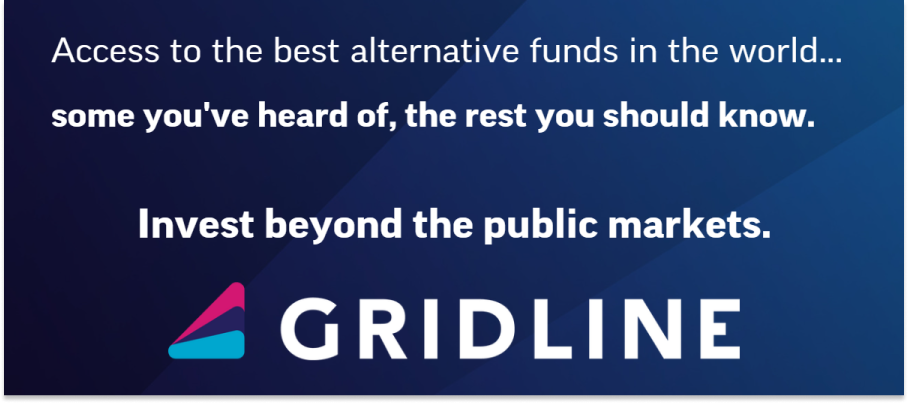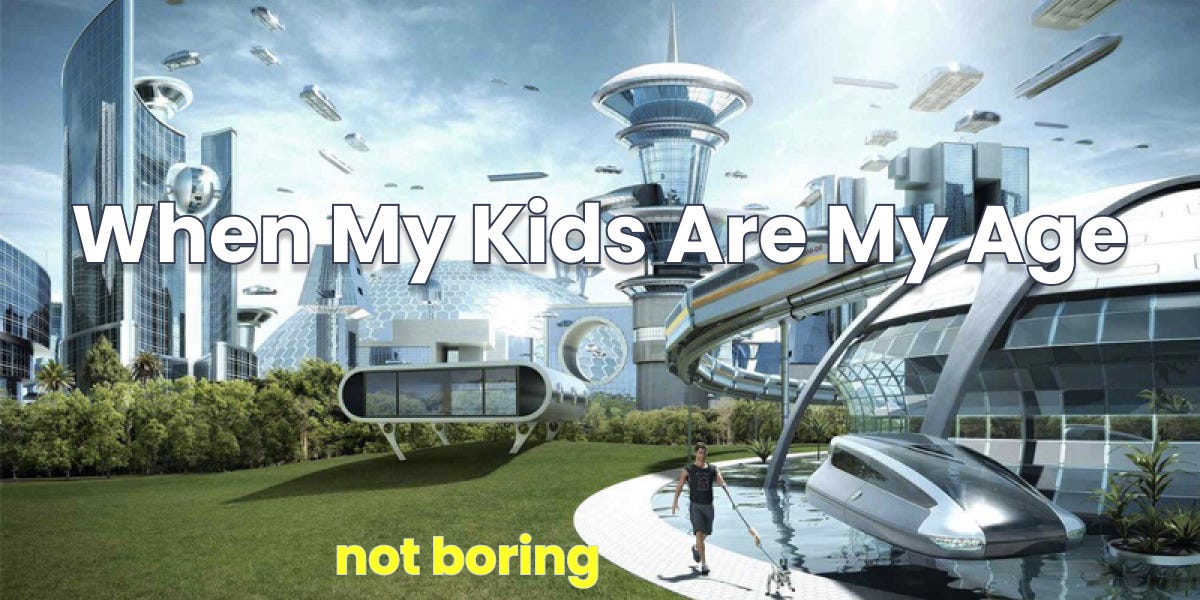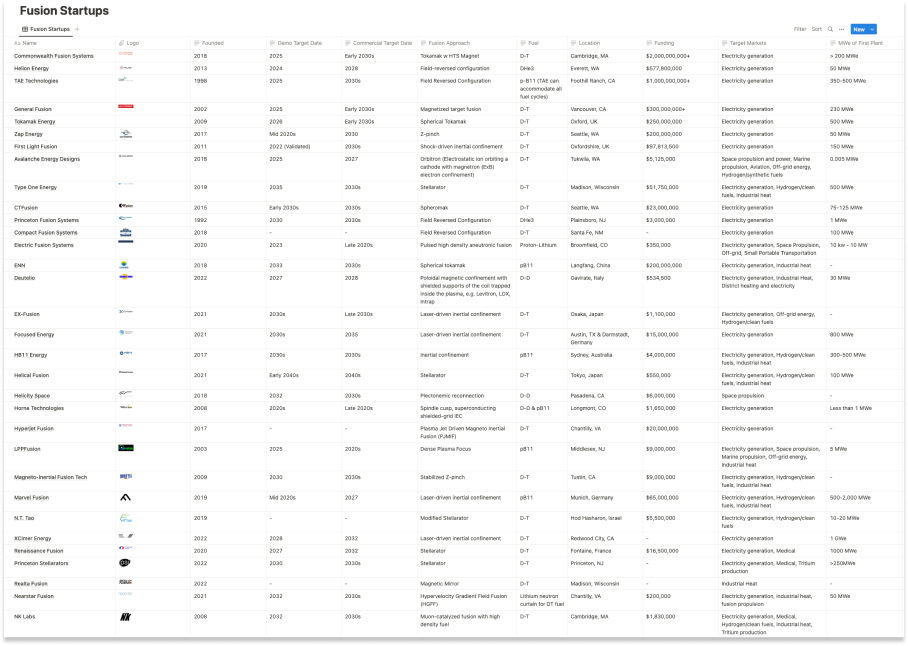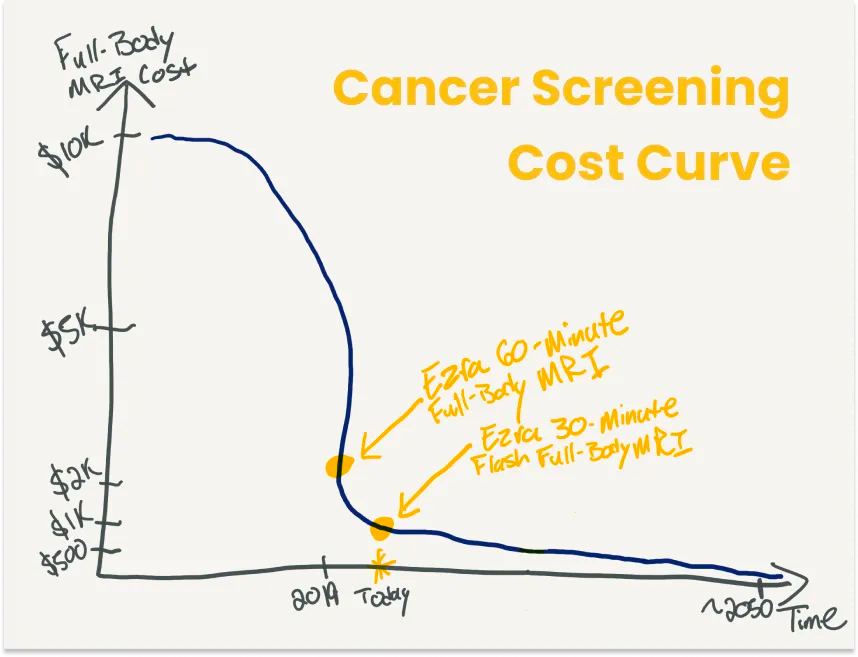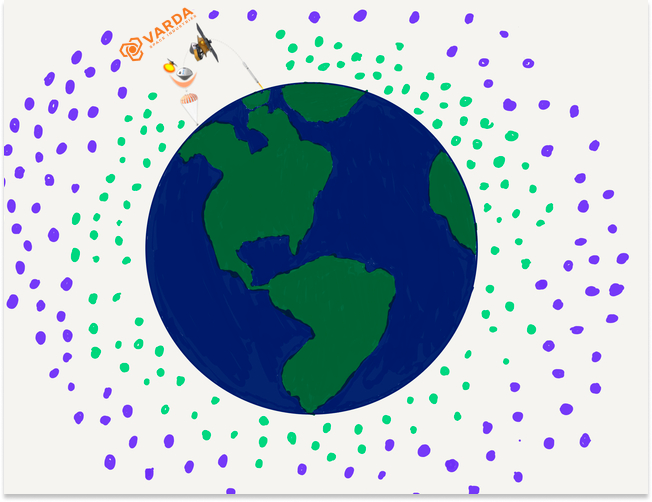Not Boring by Packy McCormick - When My Kids Are My Age
Welcome to the 942 newly Not Boring people who have joined us since last Monday! If you haven’t subscribed, join 206,041 smart, curious folks by subscribing here: Today’s Not Boring is brought to you by… Gridline Building a portfolio of alternative investments is cumbersome, time-consuming and antiquated, which is why modern investors are turning to Gridline. Gridline provides access to best-in-class funds across venture capital, private equity, private credit, and real assets, leveraging its team of experienced professionals who have worked with institutions and family offices for over 20 years. The company brings that expertise to bear in helping its members build and manage their portfolios, and Gridline's innovative technology platform makes investing in alternatives seamless, managing everything from subscription agreements, treasury management, performance reporting, and tax documents. Gridline is a modern investment platform that makes it easy for anyone to invest like the most sophisticated investors in the world. Membership to the platform is free and access is instant – Upgrade your portfolio with Gridline today. Hi friends 👋, Hope you had a great weekend, and happy Father’s Day to all the Not Boring dads. This weekend, we visited my parents at the beach to celebrate Father’s Day and my dad’s birthday (happy birthday, dad!). On Sunday morning, my mom asked what I was writing about, and I told her I had no idea. So she said, “OK, let’s brainstorm some ideas.” I rolled my eyes, as even adult kids do when their parents make suggestions, but then, as parents do, she dropped wisdom:
Gotta hand it to her. It’s a good idea. After writing about a lot of things that might make their future very cool over the past few weeks, this is a good opportunity to look at them all together. It’s a shorter one (sub-2k words!) so I could spend more time with the kids. Let’s get to it. When My Kids Are My AgeThe world that Dev and Maya live in when they’re my age is going to be profoundly different than the one I grew up in or live in today. It’s impossible to predict how. I tried a little sci-fi short story, but that’s just a guess, one of many possible futures. A more useful approach might be to look at what’s happening right now to get a sense for just how many things are going to change. When you do that, the internet looks small. In just the past month, in just this newsletter, we’ve written pieces on nuclear fusion, using screening to effectively cure cancer, the intersection of blockchain and biology to build new nations and grow anything we need, and drug factories in space. In the Weekly Dose of Optimism, we covered quantum computing becoming useful, spatial computing, ketamine for treatment-resistant major depression, airships and a paralyzed man walking again, and novel ways of fixing the environment. We haven’t even really touched on AI in the past month, but progress there continues apace. Marc Andreessen has us covered with Why AI Will Save the World. Again, all of that (ex-Marc’s piece) is just what we’ve written about in Not Boring from mid-May to mid-June 2023. For context, when my mom got back from maternity leave, there were roughly 30,000 hosts on the internet, and the only reason she knew it was a thing at all was that she worked for a large telco. Most people had no idea what was coming then, and even those who knew it was happening had no idea how it would work its way into every aspect of our lives. It would be presumptuous to believe that we have a clearer view of the future from our vantage point today than they did from theirs then. But there are clues, even if our current cutting-edge tech is at the “30,000 hosts on the whole internet” version of what it’ll be in the 2050s, and we can extrapolate. At a minimum, that famous 1954 Lawrence Strauss speech to the National Association of Science Writers may be true for our children even if it wasn’t for his:
When I think about the future Dev and Maya will get to experience, I feel, if I’m being honest, a little bit jealous. Even if all of the fusion companies are a decade too optimistic in their commercialization timelines, and commercial fusion doesn’t come online at meaningful scale until the 2040s, Dev and Maya will already have lived with nuclear fusion for a decade by the time they’re my age. Their generation’s entrepreneurs will get to build products with the assumption that energy is practically free. Cancer, a shared nagging fear among my generation, may, for all intents and purposes, be a thing of the past as the cost of screening approaches zero and screening technology infuses everyday products. If even 10% of the biotech companies that we look at are successful, disease as we know it today may be a thing of the past. And Elliot believes biology will be able to do a whole lot more than cure diseases. In addition to new medicines, he highlighted that synthetic biologists are working on growing materials, chemicals, and food. Varda plans to send factories to space almost daily by the 2030s. What will the space economy look like 20 years beyond that? Certainly, the world will be blanketed with high-speed internet connection – internet too cheap to meter! – but it’s not inconceivable that Dev and Maya will vacation in space hotels the way you and I might vacation in Mexico. They may even, as Robert Zubrin suggests, commute to work in industrial parks in space. And as Marc summed up his optimistic take on AI:
Even if we’re at the peak of the hype cycle in any or all of these technologies, thirty years is enough time for them to fall into the trough of disillusionment, climb back up the slope of enlightenment to the plateau of productivity, and become boring. My kids will be riding new S-curves we can’t even fathom today. If that seems overly optimistic, consider the fate of two technologies that have been stuck in a never-ending loop in the first half of the Hype Cycle: AR/VR and self-driving cars. AR/VR. I ranted about this on twitter already, but with Apple’s announcement of the Vision Pro, a lot of people who were very skeptical about AR/VR a few weeks ago are very excited about it now. This first version won’t be the thing that gets everyone to adopt the technology – Apple projects something like 1 million units – but it’s clear that we’re on the path down the cost curve and up the capability curve that will ultimately lead to widespread adoption. Self-Driving. Right now, as we speak, in Phoenix and San Francisco, people can pull out their phone, book a ride with Cruise, get in a car with no driver, and get driven to their destination. There should be celebrations in the streets, ticker tape parades at least as big as the Denver Nuggets’. I remember watching Zenon: Girl of the 21st Century when I was twelve, seeing a bunch of kids hopping into a car that drove itself, and thinking that it was the most futuristic, never-gonna-happen-for-real shit I’d ever seen. Twenty-four years later, we have it. These breakthroughs keep happening, and each time we’re like, “Oh yeah cool, oh well, everything still sucks.” Obviously, a big part of the reason for that is that technology isn’t the cure for everything, but c’mon. Self-driving cars are real and you can book one on your phone. That’s amazing. There’s this thing where some people don’t want to bring children into this terrible world of ours over fears around climate change or whatever x-risk du jour terrifies them. Having kids is a choice and to each their own, but if people genuinely aren’t having kids because they’re worried about climate change, that’s fucking tragic. The kids will be alright, and if anything, our kids are going to feel bad for us for having to live in a world so primitive, like we feel bad for our grandparents for having to walk eight miles to and from school, in the snow, uphill both ways. I understand that things aren’t perfect today. There’s inequality, disease, war, homelessness, drug addiction, prejudice, and, currently, this exhausting debate over the RFK Jr. debate, a little peek into our larger struggle with shared truths. Tech has not solved all of the world’s problems as some of its boosters have promised it would by now. But the answer is not to retreat and regress; the moral imperative is to grow our way to the other side. This is not pollyannaish indefinite optimism. It is definite optimism. To be specific, the world Dev and Maya live in when they’re as old as Puja and I are now will be, conservatively, one with:
This is the world in thirty years if even a fraction of the startups today succeed. There will be thousands or millions of new startups formed in the interim, new technological breakthroughs to explore, and fascinating opportunities opened up as many of today’s moonshots become jumping-off points. Just writing that list makes me so excited for Dev and Maya, and it makes me want to do everything I can to help speed it up. I want them to benefit from as much of this as possible, as quickly as possible, and I want to be there to help guide them through it. Selfishly, part of the reason I’m an accelerationist is that I want Puja and I to be able to live long enough to experience all of this magic with them. Of course, this future is not a foregone conclusion. We can easily get in our own way. There are countless paths to shooting ourselves in the foot, from getting so caught up in petty bullshit that we take our eyes off the prize to letting bad actors taint promising technologies, but those seem tractable. The biggest risk to this future as I see it is that we do a bad job of bringing everyone along, incite backlash over every new innovation, and regulate ourselves to death, at least in the United States. Nuclear and psychedelics are just two of many cautionary tales. That dynamic is the reason that Not Boring’s mission is to make the world more optimistic. It’s not so that we all feel blindly and uselessly hopeful in the face of really bad things; it’s so more people can see that the future, hopefully ours and definitely our kids’, is insanely bright if we let it be, and have the knowledge and enthusiasm to fight on the side of that future. As I sat here writing this on Father’s Day, while my kids were playing on the beach, I thought of the story of the investment banker and the fisherman. You know the story. There’s a fisherman who fishes a little every day, siestas with his wife, spends time with his kids, and dances with his friends. An investment banker vacationing in town tells him that he could fish more, expand, take on financing, make a lot of money, and then retire early to fish a little every day, siesta with his wife, spend time with his kids, and dance with his friends. It got me. I stopped writing, went down to the beach, and played with my kids. There’s no point in getting excited about living longer and being able to work less if you already don’t get to enjoy the time you have with the people you love. But they’re at the beach again, and I’m here writing. Unlike the fisherman, I don’t want the world to look the same when I retire as it does today. Thanks to my mom for the idea and Dan and Puja for editing! That’s all for today. We’ll be back in your inbox on Friday for the Weekly Dose. Thanks for reading, Packy |
Older messages
Weekly Dose of Optimism #47
Tuesday, June 20, 2023
Quantum Computing, Decreasing Inequality, Ketamine, Building Budgets, Bio x Hackathon, Varda Launch
Varda: The Space Drug Factory
Monday, June 12, 2023
Expanding the Economic Bounds of Humankind, Starting Today
Blockchain Meets Bio
Monday, June 12, 2023
Elliot on the intersection of bits and atoms at Zuzalu
Weekly Dose of Optimism #46
Monday, June 12, 2023
Pirate Wires, Apple Vision Pro, Developer Productivity, Taurine, IT'S TIME TO AI
Weekly Dose of Optimism #45
Friday, June 2, 2023
Ketamine, Skeletal Editing, Dementia, Rwanda, AI Safety statement, Ezra
You Might Also Like
🔮 $320B investments by Meta, Amazon, & Google!
Friday, February 14, 2025
🧠 AI is exploding already!
✍🏼 Why founders are using Playbookz
Friday, February 14, 2025
Busy founders are using Playbookz build ultra profitable personal brands
Is AI going to help or hurt your SEO?
Friday, February 14, 2025
Everyone is talking about how AI is changing SEO, but what you should be asking is how you can change your SEO game with AI. Join me and my team on Tuesday, February 18, for a live webinar where we
Our marketing playbook revealed
Friday, February 14, 2025
Today's Guide to the Marketing Jungle from Social Media Examiner... Presented by social-media-marketing-world-logo It's National Cribbage Day, Reader... Don't get skunked! In today's
Connect one-on-one with programmatic marketing leaders
Friday, February 14, 2025
Enhanced networking at Digiday events
Outsmart Your SaaS Competitors with These SEO Strategies 🚀
Friday, February 14, 2025
SEO Tip #76
Temu and Shein's Dominance Is Over [Roundup]
Friday, February 14, 2025
Hey Reader, Is the removal of the de minimis threshold a win for e-commerce sellers? With Chinese marketplaces like Shein and Temu taking advantage of this threshold, does the removal mean consumers
"Agencies are dying."
Friday, February 14, 2025
What this means for your agency and how to navigate the shift ͏ ͏ ͏ ͏ ͏ ͏ ͏ ͏ ͏ ͏ ͏ ͏ ͏ ͏ ͏ ͏ ͏ ͏ ͏ ͏ ͏ ͏ ͏ ͏ ͏ ͏ ͏ ͏ ͏ ͏ ͏ ͏ ͏ ͏ ͏ ͏ ͏ ͏ ͏ ͏ ͏ ͏ ͏ ͏ ͏ ͏
Is GEO replacing SEO?
Friday, February 14, 2025
Generative Engine Optimization (GEO) is here, and Search Engine Optimization (SEO) is under threat. But what is GEO? What does it involve? And what is in store for businesses that rely on SEO to drive
🌁#87: Why DeepResearch Should Be Your New Hire
Friday, February 14, 2025
– this new agent from OpenAI is mind blowing and – I can't believe I say that – worth $200/month
